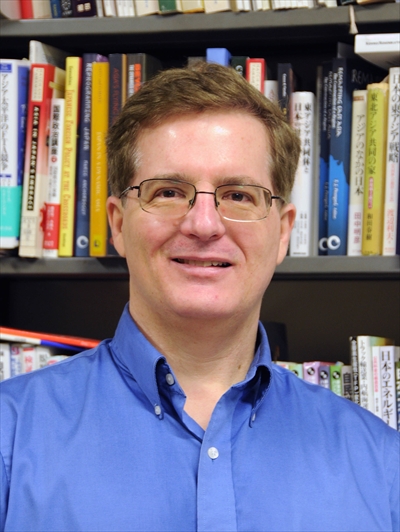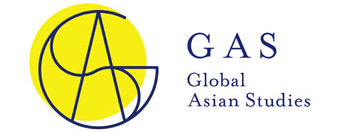An Interview with Professor Gregory W. Noble of the Institute of Social Science, the University of Tokyo
Yijiang Zhong (Institute for Advanced Studies on Asia)

First, from the perspective of your field of research, how do you look at the current situation of Japanese studies at Todai?
As a political scientist working at the Institute of Social Science (commonly known as ISS or Sha-ken), I think the situation at Todai is quite positive. Shaken is home to the Center for Social Research and Data Archives, which conducts and archives many major surveys, such as the Japanese Life Course Panel Survey and the Japanese General Social Surveys. The Center is the Japanese hub organization for the authoritative Inter-university Consortium for Political and Social Research (ICPSR) headquartered at the University of Michigan. Shaken also hosts a stream of foreign researchers working on Japan-related topics; engages in regular exchanges of faculty with leading institutions abroad, including Princeton, Berkeley and the Free University of Berlin; edits an SSCI-listed interdisciplinary journal called Social Science Japan Journal, of which I am Editor-in-Chief, and a biannual Social Japan Newsletter; and sponsors both an English-language lecture series called the Contemporary Japan Group, for which I am convener, and a monthly meeting, also in English, of young researchers called the “PhD Kenkyukai,” which I co-convene with Professor Kenneth McElwain. Outside of Shaken, Professor Taniguchi Masaki of the Todai Law Faculty hosts the influential Asahi-Todai surveys of voters and Diet candidates, while Professor Kawato Sadafumi, also of the Law Faculty, is the editor of a new 11-volume “Series—Japanese Politics” now emerging from the University of Tokyo Press. I think it is fair to say that Todai, including Shaken, is the leading contact point between Japanese researchers and overseas researchers working on Japanese politics and social science.
Second, how do you look at the differences and similarities between Japanese studies overseas and Japanese studies in Japan?
In many ways, the two are converging. Japanese scholars tend to pay close attention to trends in international research, and at least at Todai and other leading Japanese universities, researchers are increasingly actively publishing in international journals in English. Conversely, foreign scholars are actively coming to Todai and other leading Japanese universities to conduct fieldwork. Unfortunately, it is also true that Japanese studies abroad are shrinking somewhat, squeezed both by a general trend to de-emphasize area studies, and by declining interest in Japan relative to hot topics such as the rise of China and the turmoil in the Middle East. Foreign scholars are also having a more difficult time keeping up with the burgeoning, high quality social science research published in Japanese. For that reason, at SSJJ we are putting greater effort into publishing “Survey Articles” introducing various timely debates, issues and data sources in Japan, as well as “Review Essays” covering three or more books, usually some or all of which are published in Japanese, so that overseas readers can more easily keep abreast of scholarly trends in Japan.
Third, your advice on promoting a global Japanese studies that can bring together scholars overseas and scholars in Japan.
I think Shaken, the Institute for Advanced Studies on Asia, and other units within Todai are already working actively to maintain and expand international contacts, including development of networking tools. Personal contact remains crucial, however, so I hope we can convince more researchers, particularly from Asia, to spend extended periods of fieldwork here in Tokyo, and participate more actively in teaching and research activities.



